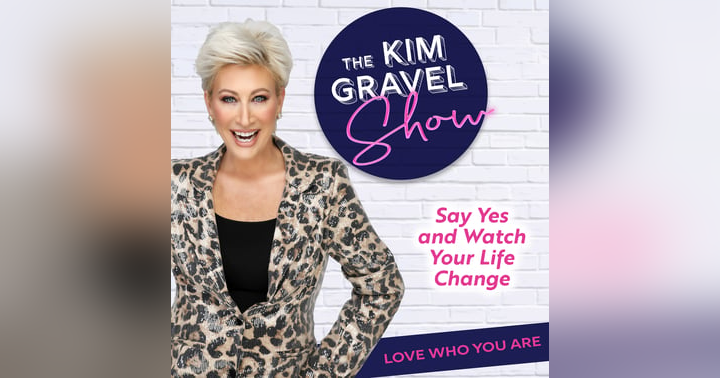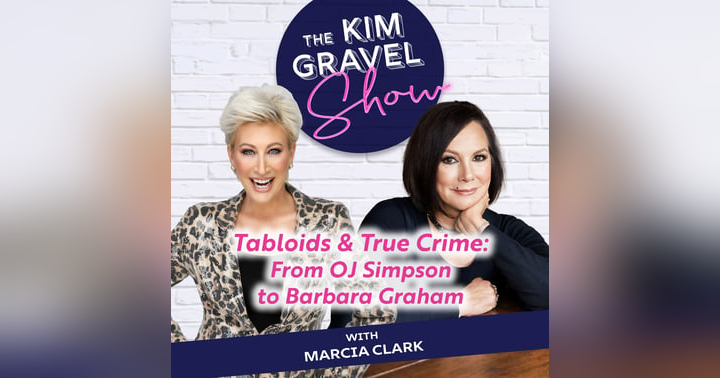6 Rules for Making New Friends and Keeping Old Friends
Despite the Internet, email, and social media keeping people more connected than ever before, we’re also lonelier than ever before. That’s probably why friendship is one of the most requested topics at The Kim Gravel Show: how to make new friends, how to keep old friends, and how to maintain friendships as adults.
The Kim Gravel Show producer Zac Miller said he receives heartbreaking emails about how lonely they are: “I don’t have any friends,” “I don’t know how to make friends,” and “my friends have abandoned me.”
Kim wants people to know it doesn’t have to be this way. Your best friend could be right around the corner.
Kim sat down with her ride-or-die best friend Amy Goins and together, they came up with six sure-fire rules to follow to develop closer relationships and become more connected to your friends.
Kim and Amy met in 1998. Kim asked her to come on the show after researchers from the University of Virginia did a study to see how friendships influence how people approach daily challenges. They asked students to stand at the bottom of a hill. Some stood alone and some stood with friends. The students who stood alone thought the hill looked difficult to climb and perceived the incline as steeper. Those who stood with friends thought it looked easier and gave lower estimates of how steep it was. The longer the friends knew each other, the less steep the incline appeared.
The research shows that friends can change our view of challenging situations.
Why? Because friends allow us to outsource some of the emotional burdens we carry (and we all know we’re carrying more mental burdens than ever before, right?!).
Rule 1. Have support, trust, and complete.
We live in a world that is so fake, phony, and hyped. Trust is hard to find … and it takes time to build.
We know there are different levels of friendship, right? There are layers of trust and connection. When you feel like you don’t have any deep friendships, or close friends, consider starting to cultivate some surface relationships first.
It takes time to develop that ride-or-die level of friendship—and trust is part of that. First you have to trust yourself, so you can build trust with someone else. Kim said she trusts Amy with her own life, the lives of her children, with her money—everything. Amy feels the same way about Kim. But it’s taken 25 years to develop that level of core trust.
How do you earn trust? You may earn it by sharing secrets, or by sharing some of the struggles you’re having—internally or financially or situationally.
In every situation, be the trustworthy friend. Look out for your friend.
Rule 2. Listen. Like, really listen.
You can’t have a friendship without listening. Friendships require attention and tending. In Kim’s and Amy’s case, they’ve been friends for so long that they may catch each other half-listening. But when you’re building a new friendship, it’s important to listen fully.
Kim said Amy was the best listener Kim had ever met, and that has played a huge role in the length and depth of their friendship.
Amy shared that she has a situation with another friend where she feels like whenever she shares a challenge or situation, the friend comes back with a solution … and sometimes she just wants someone to listen and hear her.
Sometimes a person just needs to say what’s on her mind and heart.
Practice good listening and the right people will be drawn to you!
Rule 3. Ditch the judgment.
There is not a person on this planet who should be judging the decisions of anyone else in this world. We are all fallen, broken, lowdown, and can’t get out of a rainstorm.
Good friends will accept your choices no matter what.
We all make mistakes—more than we even share with others. There is no sense in judging someone. Kim and Amy discussed how one of the fantastic things about their friendship is how they argue so hard; they’re both strong and fierce. No matter how or when they argue, though, they don’t judge each other.
Always give your friends the benefit of the doubt, even if they fail you, even if they hurt you, even if they don’t live up to all the expectation you think they should have.
Rule 4. Don’t talk behind your friends’ backs.
Gossip is dangerous! Women sometimes use it to cement our social standing, or put out the net to see if we can nab other friends. Amy and Kim agreed that they’d never say anything bad about each other to anyone else.
Rule 5. In good friendships, there are no boundaries.
Kim shared a rule she read about respecting their friends and their boundaries and said that’s good for new, surface-level friendships, but doesn’t apply to long-term, closer friendships.
You’ve got to be your true self in friendships—lay it all out there. You have to say the tough things and receive the tough things. That is true friendship. That is true love.
Amy said that’s where vulnerability comes in; you have to be vulnerable to put it all out there, to talk about and deal with anything and everything.
Rule 6. Forgive.
Forgive your friends and seek forgiveness when you screw up. Expect more of yourself, and expect more from others.
No relationship will ever give you 100 percent of what you need; if you’re always looking outside of yourself or your faith for fulfillment, you won’t find it.
Don’t look at the need a friend can fill in you—look at the need you can fulfill in a friend.
In conclusion, everyone can have friendship. It’s always about giving. It can be hard work. It can be exhausting, but it’s so worth it. You’ve got to be a friend to have a friend. Start listening. Start opening yourself up. Start being vulnerable. Start making new friends and deepening your connections with your old friends.

